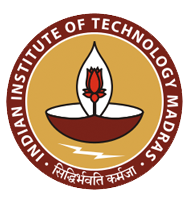10 March - Blog
The 10th Annual Deshpande Symposium was held as an online event in June this year. GDC conducted a panel discussion at the event, on the ‘Emerging role of academicians and researchers in the Indian startup ecosystem’. The panel comprised distinguished academicians from across India – Prof. Ravinder David Koilpillai from IIT Madras, Prof. J. Ramkumar from IIT Kanpur, Dr. Manish Arora from the Indian Institute of Science, Bengaluru, and Ms. Poyni Bhatt, CEO of Society for Innovation & Entrepreneurship (SINE) at IIT Bombay. The discussion was moderated by R. Raghuttama Rao, CEO, GDC.
Opening the discussion, Mr. Rao explained that the purpose of GDC was to replicate in India the impact that National Science Foundation’s Innovation Corps had in the US. “We help early-stage entrepreneurs avoid the ‘valley of death in innovation’. Over the past three years, we have gathered evidence of how our programs are helping academicians and researchers think differently. Through the I-NCUBATE program, we have been able to help entrepreneurs reduce their odds of failure.”

Speaking on the startup ecosystem in India, Mr. Rao said that according to government data, India is emerging as the third-largest startup ecosystem in the world. “However, our labs – both national R&D and university facilities – are not well connected to the startup ecosystem. Our R&D spend has stagnated for the past few years at 0.7% of GDP, much lower than the R&D spends in US, China, and Korea.” On the other hand, Mr. Rao added, “India has a large educational infrastructure – with over 12,000 science colleges and 4,000+ engineering colleges. The problem is that only a few of these colleges have put in place a systematic process to commercialize research by bringing it to the market.”
“In absence of this, Indian products are dependent on technology developed in the West, where the per capita income is over $40,000. In India, over 65% of people have an annual income of less than $1,000. This implies that a large section of Indians does not benefit from the expensive technological solutions of the West. Therefore, it’s imperative for India to solve its challenges – from climate change to public health – through local innovations. To bridge this gap, India is coming up with new public policies, and is planning to boost R&D investments,” said Mr. Rao.
Speaking on the change witnessed in the research environment in India, Prof. David recalled how the Indian Institutes of Technology (IITs) have reinvented themselves from being predominantly undergraduate teaching institutions to research-centric ones. “IIT Madras, for instance, has more postgraduate students than undergrads. We are also seeing substantial growth in funding levels in India. Last year, the Electrical and Electronic Engineering Department received 33 funded-research proposals with a total value of $8 million,” he said. “Finally, the most crucial change is in the confidence level in students and scholars, in taking up challenges in globally competitive research topics.”
Prof. Ramkumar spoke about his transformation, from predominantly publishing papers to filing patents to building products. “While I was working on my papers, I realized that patents are the future. When I was working on my patents, I thought the end result will be directly absorbed by corporate companies. Later, I understood that these patents are not directly ‘digestible’. So, I had to understand what companies want and fine-tune my products or patents,” he said.
Bringing his startup to the I-NCUBATE program was a transformational experience for Prof. Ramkumar. “It was eye-opening… I started understanding market needs or industrial requirements. After that, in the past three years, I commercialized four of my products. It took a mindset change to move from research to commercialization,” Prof. Ramkumar added.
Ms. Poyni explained the advantages academic incubators have over private ones. “There is a whole gamut of research history at universities, an R&D base, apart from access to human resources from undergraduate students to research scholars,” she said. “Infrastructure such as laboratories is also available in incubators based in academic institutions. The milieu of an academic incubator, hence, is very different from a private one.”
Dr. Manish Arora stressed the importance of social impact for innovations to crystallize into a product. “It’s challenging to focus on both research and the need to commercialize research. It’s important to understand that social impact is a key factor. At GDC, we were able to realize that the real-world requirements are very different from the lab environment. Once we meet customers, we can develop a product that will benefit society. Going through the GDC program reinforced these understandings.”
Recent Posts
post those are very recent in Dot
Category
browse all your favourite categories
